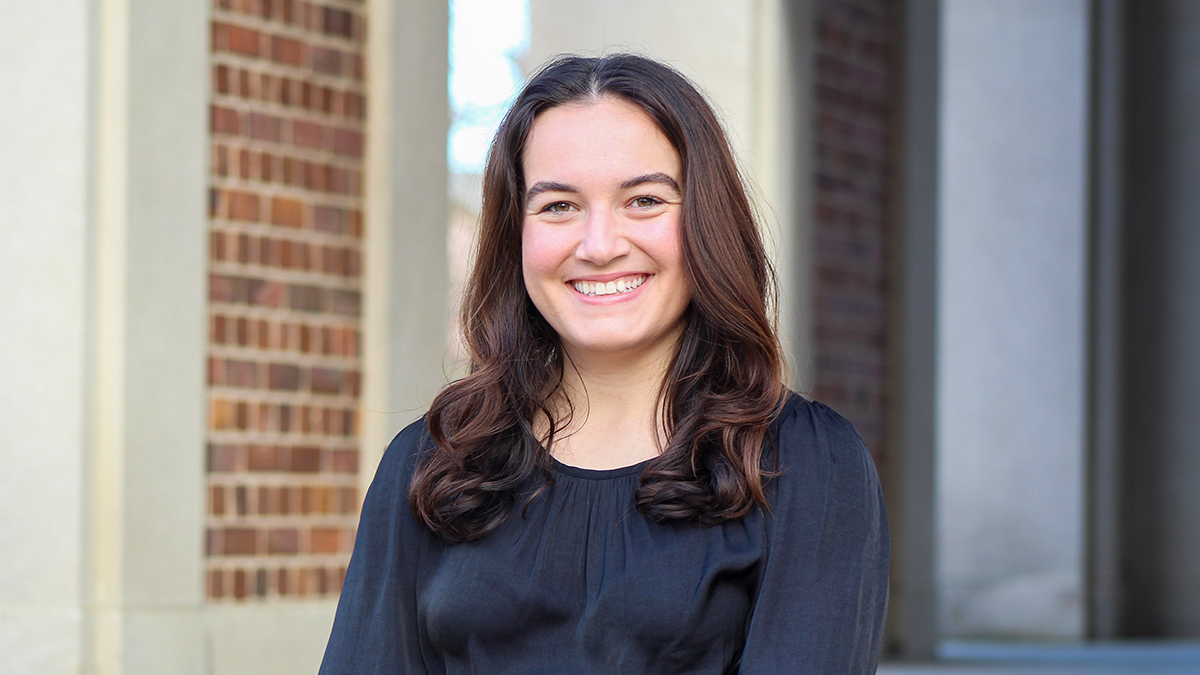Imagine. Innovate. Invent.
The School of Media and Journalism is preparing students to ignite the public conversation and to understand the role of communication in fostering democracy.
It’s what we do at the UNC School of Media and Journalism, with an infectious enthusiasm that starts with our students. They are the next generation of leaders to transform how people gather, present, receive, interpret, share and act on information. Our graduates will invent the future of media and journalism.
We are in good hands.
The University of North Carolina at Chapel Hill attracts the very best and brightest minds from communities in every county of our state, every state of our nation and more than 40 nations of the world. They come to Carolina with ambition to learn, grow and prepare for their lives and careers. They are the next wave of innovators in society, culture, business and public policy.
It is our job to help prepare these rising stars to ignite the public conversation and to understand the role of communication in fostering democracy. We ask our students to start here and never stop. We instill the values, develop the skills and foster the outlook needed to lead industry through change and disruption so that citizens have the information they need to make accurately-informed decisions.
We serve an industry facing existential challenges from seismic shifts in technology, business models and public perceptions. We have to anticipate ongoing changes and see around corners. MJ-school students, faculty, staff and alumni recognize the challenge, embrace the opportunity in change and hold steadfast to the foundational values and ethics that have established and rooted the media as the trusted fourth estate in our nation’s democracy.
Our work is no less than important than the rights, freedoms and privileges that are the hallmark of the free, democratic society that we help to protect. We are unwavering government watchdogs, illuminating storytellers, inquisitive scholars and strategic advocates for organizations and ideas. In the often-polarized political environment surrounding media and journalism, the school is committed to accuracy and fairness and enabling productive dialogue and debate around the important issues we face.
How do we live up to the mission?
We attract, support and empower faculty members who are leading experts in their fields with a deep commitment to student success. A distinguishing characteristic of our faculty is the mix and balance of creatives, professionals and scholars. This is a rare quality among our peers and competitors. It gives our students an invaluable perspective on the interplay of research, new knowledge and the realities of business and industry.
We don’t compromise on values and ethics. Every student is trained in the concepts and importance of professional ethics throughout our curriculum across all disciplines. Our graduates will all encounter ethical dilemmas along the way in their careers. Many will be in leadership positions responsible for demonstrating the values of their organization. We work to make sure they are grounded in ethics and prepared to lead.
We emphasize the value of critical thinking — teaching students how to evaluate information, understand the stories it tells and find the best ways to connect it to the communities that need to know.
We train them to work confidently with data and numbers. Students learn how to access and analyze data to identify trends and insights that are essential to effective communication in today’s data-rich environment.
The power of great storytelling is central to our work. Whether in journalism, advertising or public relations, the ability to tell a story that captures an audience, informs them and provokes deeper consideration and understanding is the coin of our realm. It will remain so regardless of any changes in technology or platforms.
Journalists and media professionals once could focus solely on reporting the news, telling a story or implementing a strategic campaign. No longer. We now must have a keen understanding of the economics and business environment in which our work is applied. As our students develop a wide range of communication skills and concepts, they are also introduced to the business concepts that determine the reach, viability and impact of their work. Our students get it, and they are gravitating to opportunities to learn, explore and test business models. The spirit and drive of entrepreneurship is pervasive among our students.
The school believes deeply in the value of experiential education in which students learn through immersive learning experiences. Our students step out of the bubble of the classroom to work with businesses and nonprofits taking on real-world challenges, pitching strategic campaigns and producing important stories. They are not just learning how to do it; they are doing it. They network with alumni professionals and work on projects in the field that expose them to other cultures and expand their perspective on the world around them.
We see the power and necessity of diverse perspectives and voices in media and journalism. Meaningful and productive public conversation depends on it. We’re partners with Capitol Broadcasting Company locally, and with Bloomberg News nationally and internationally, to strengthen the industry with programs that provide life-changing career support and opportunities for students — and create a pipeline of diverse talent into the industry.
The UNC School of Media and Journalism is continually evolving and transforming to prepare students to be leaders in an industry where persistent change and disruption are the expectations. We graduate ambitious, highly-skilled, ethical leaders who understand the business they are entering. It is their success that fulfills our long-held commitment to inform the public, serve the industry and academy, and strengthen our democracy.




